COMICS: Inside the 'Ultimate Avengers' DVD
with writer Greg Johnson
I hooked up recently with
Greg Johnson, the screenwriter of the new
"Ultimate Avengers: The Movie" DVD that hits stores Tuesday.
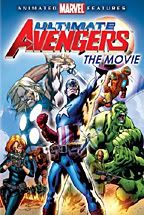
Johnson happens to be from Roseburg, Oregon, where I hail from, and I thought it'd be fun to do a profile of this local-boy-turned-animation writer. Johnson, 45, has been writing stories for cartoons featuring characters from Spider-Man to the X-Men to the Teenage Mutant Ninja Turtles.
Johnson’s latest creation is a movie — the new
“Ultimate Avengers” DVD from Marvel Comics, which comes to stores Tuesday. The straight-to-DVD release, rated PG-13, is first of a series of eight original “animated Marvel features” planned for release in coming months. Based on
“The Ultimates” comic book series from Marvel Comics, it’s the story of a team of government-sponsored superheroes including Iron Man, Thor and The Hulk, who awaken the legendary World War II hero Captain America from suspended animation.
Johnson has already been tapped to write future installments in the animated films, including
“Ultimate Avengers II” for release later this year, and
“Iron Man” and
“Dr. Strange” features. He also is developing a new television series spinning off from the popular “X-Men” comics and movies,
“Wolverine And The X-Men.” Greg was great fun to interview, but in my fanboy eagerness (I'm a big admirer of "The Ultimates" comics), I sent him a veritable flood of questions, which he very kindly gave great answers to -- but far too much to all fit in the print article for my day job. So for Spatula Forum readers who might be interested in this "inside look" at the animation industry and a pretty-cool sounding new DVD, here I present a much longer
"director's cut" Q&A with Greg (and if you care to compare with the more traditional print article, you can find it over
here).
How did you end up being approached for the "Ultimates" job? I’ve written for various Marvel shows since the mid-1990s, and my latest job prior to the “Ultimate Avengers” was as head writer on a series for KidsWB called
“X-Men: Evolution,” which ran successfully for four seasons. So when these direct to video projects came up, they gave me a call. I was right in the middle of developing a series for Cartoon Network called
“Ben 10” at the time, but I just couldn’t pass up the opportunity. So I jumped ship.
How did you end up in an animation career? You studied art at Southern Oregon University – how did that lead to ‘Toon Town’? When my wife and I first moved from Oregon to California, all I had on my resume was some work I’d done directing a couple of educational films in college, and a stint as a production assistant on a low-budget movie that was shooting in Ashland, Oregon. Persistence was the only thing that got me hired on at a small film company called Apollo Pictures, where I read scripts and wrote evaluations for the executives. I worked my way up to director of development … My experience there taught me one thing – I didn’t like being on the executive side of the desk. I wanted to be writing. So I took advantage of some professional relationships I’d made and got my first job writing on an animated series called
“Biker Mice From Mars.” I loved it. Coming out of the development-heavy feature world, it was so refreshing for me to be involved in a process where you write something and it immediately gets produced.
I’ve always loved cartoons. My tastes when I was younger went from Spider-Man to Scooby Doo to anything Disney. What’s odd is that most of my focus as a writer seems to be in the superhero realm, though I was not an avid comic book reader as a kid. I picked them up occasionally, but I certainly didn’t follow any of them. Actually, that has probably helped me in my career, because I’ve never been swayed by a purist’s point of view or the decades of baggage that accompany most of the Marvel heroes.
When you sat down to adapt "The Ultimates," how faithful did you want to be to the source material? You're pretty much adapting Mark Millar and Bryan Hitch’s first 12 issues or so in a 90-minute movie. 
Adapting a comic story is really no different than adapting any other form of literature for the screen, in my opinion. The first thing you have to do is take it apart and determine what will translate and what won’t.
Using “The Ultimates” as source material served two purposes, though. One, it was an incredibly successful book in which Millar and Hitch re-envisioned how the Avengers assembled for the first time, and so capitalizing on its success made good business sense. And two, it was a very cinematic story, not afraid to reveal the flaws of America’s favorite superheroes. The books established a well-conceived and exciting origin for the Avengers, particularly how Captain America became involved with them.
However, “The Ultimates” is a very mature approach to this origin, and some elements in the book were just not appropriate for young children in my opinion. So some deviation from the books was necessary. If you were to explain the story of Volume 1 in a sentence, it would be: The Avengers are formed, they can’t get along, they drift apart, and they end up banding together to fight the Incredible Hulk. One of the benefits of telling this kind of story on the graphic page is that you have the liberty to explore a kind of “day in the life” of the characters without necessarily needing the urgency of a larger plot escalating in the background. What is a fun read on the page can sometimes feel aimless on the screen.
What's the appeal of the Ultimate Avengers to you as a writer? 
I view the Avengers as “The Dirty Dozen,” one of my favorite movies. They’re a group of diverse personalities all thrown together because of their abilities, not because they like each other. Teams are only interesting if they let their differences get in the way. I mean, you give five people special powers, and each one will handle it in a different way. Some let it go to their heads, like Hank Pym, and some only want to be good soldiers, like Captain America. Overall, the Avengers in this film are a blend of both The Ultimates and the Classic characters – so that’s why we’ve called it “The Ultimate Avengers.”
Did you have any problems trying to deal with the baggage of years of continuity with these characters like Captain America and The Hulk, or just try to approach them as clean slates?I tend to cut loose the baggage immediately. Try running a PowerPoint presentation on any one of these characters, and it would be a confusing mess. You’ll find yourself trying to unscramble lives that extend into alternative dimensions, space travel, time travel, and family trees so broad that it would choke a genealogist. That is a product of nearly half-century of comic book writers trying to do their jobs and tell new stories. So Marvel has done something with their Ultimate line of books to remedy this, like Ultimate X-Men, Ultimate Spider-Man, etc. The universe has basically been rebooted so new readers can enjoy them from a fresh take on their origins.
Who's your favorite member of the Ultimate Avengers to write and why? Who was hardest? 
I loved writing Steve Rogers (Captain America). He’s a man out of his own time, having been the only superhero of his day back in 1945. And now, pulled from the ice after 60 plus years, he not only has to adjust to unfamiliar surroundings, but must come to terms with a world where he’s not the only superhero, but one of many.
The toughest was Hank Pym. He has the potential to be such a dark and unpleasant character. After all, there are even issues of spousal abuse in the books. On the same token, there is time in the books to work on redeeming him during the length of the succeeding issues. But in this movie, where Hank’s storyline is one of many, there just isn’t the time to redeem him to any satisfying degree. … Finding the balance with him was a challenge, but ultimately as a result, he’s become one of our most interesting and complex characters. You’ll see a lot more of this explored in the sequel.
How does writing a script for animation differ from writing for live action?
Animation has a very unique pacing to it. The scenes are shorter and the dialogue must serve two agendas simultaneously – furthering the plot, and reinforcing the character arc. In live action you can put two people in a room, and let their performance sustain a ten minute scene that’s fun to watch. That’s real tough to do in animation, where emotions often times have to be supported with dialogue, because you just can’t count on the ‘acting’ of an animated face to carry it alone.
What's your favorite project you've worked on?For television, I really enjoyed writing
“Buzz Lightyear of Star Command” because it had a nice blend of comedy and action. I’ve always had a love for Disney, and this was as close as I’ve ever come to contributing to the House the Mouse built. The most fulfilling was probably
“X-Men: Evolution,” because the network handed us such restrictions that it seemed the series would die an embarrassing death after the first season. But then the network loosened the reins a bit, and I was able to take the series from “X-Men Lite” to a series that strived to respect what the X-Men were all about. The most exciting project would be the third direct-to-video, which is
“Iron Man.” I had the freedom to create a new story around the established origin, and I think it came out very well. For fans of Iron Man, this one is going to be a real treat.
You've already got a full slate for the future it sounds like with "Ultimates II," "Iron Man" and more. What's the next project coming?
I’ve already written the first four of a planned eight DTV movies for Marvel and Lions Gate.
“Ultimate Avengers,” “Ultimate Avengers II,” “Iron Man” and
“Dr. Strange.” Each one takes twelve to eighteen months to animate, and I can still remember working on the script for “Ultimate Avengers” two summers ago while visiting my folks in Roseburg. I sat out on their back patio, the beautiful and peaceful Umpqua River spread out before me, and wrote superheroes battling alien Nazis. It doesn’t get any better than that.
I’ve got my fingers crossed that “Ultimate Avengers” is a success, because that will be what decides if there will be a fifth movie or not.
Can you tell us anything about the "Wolverine and the X-Men" series you're developing?
All I can say about this new show is that it will be a blend of the 1990s “X-Men” series, “X-Men: Evolution,” and the “X-Men” movies. Other than that, stay tuned…
What do you think of the final product? How does it feel to see your words come to animated life?When I write, I always visualize the scenes in live action. So there’s always a moment of adjustment when seeing them animated. The director and the board artists do veer from the script on occasion, and I’m thrilled when they improve it. But sometimes they try things that aren’t as strong, in my opinion. And occasionally the director will add dialogue during the recording sessions, and it’s a surprise to see it on the screen. That happened a few times in “Ultimate Avengers.” So any dialogue that falls flat in the movie, just assume it was the director. Just kidding...


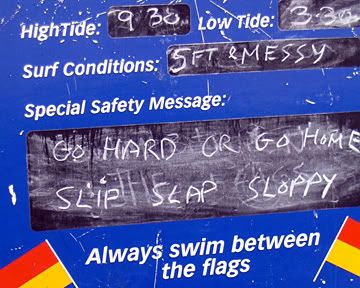

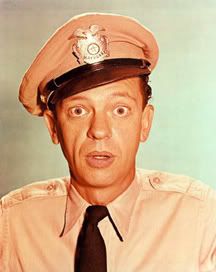
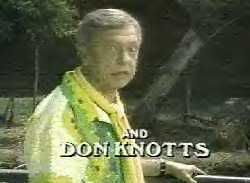













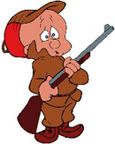
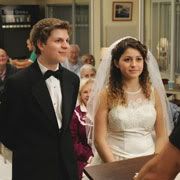
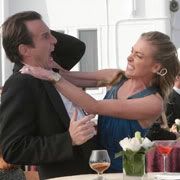
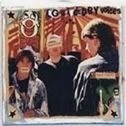
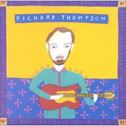

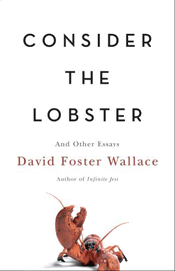

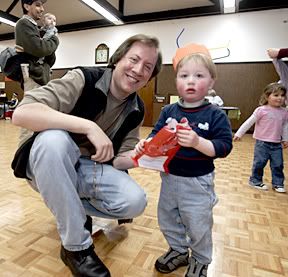
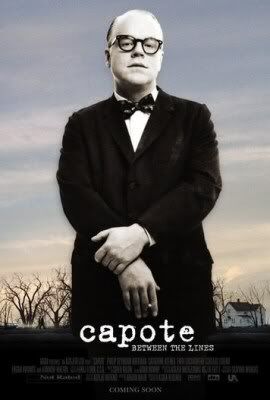
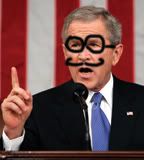

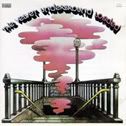


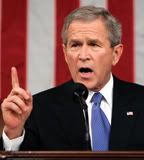 ...Yeah, I didn't watch the
...Yeah, I didn't watch the  So, how about them
So, how about them 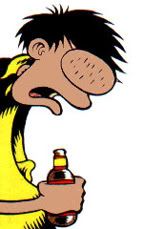 I've been on a kick lately re-reading
I've been on a kick lately re-reading 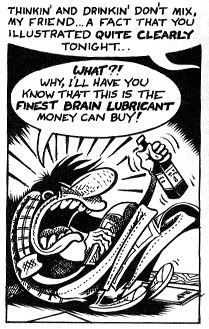 I still get a kick out of Bagge's rubbery, expressive art (nobody quite draws twisted cartoon sex like Peter Bagge). And it's all funny as hell -- Buddy tries to manage a grunge band, Buddy hooks up with a psycho girlfriend, Buddy works in a used bookstore -- but what was interesting to me on a second look is how underneath all the cartoon contortions and sight gags, Bagge is one hell of an author. Buddy Bradley is a cartoon, but he's also a very recognizable, flawed human being, awash in self-loathing, misguided passions and sudden anger. Bagge gets the nutty insanity of relationships between men and women, and captures the ugliness that can erupt in an honest way few writers have. Bagge's art is so exaggerated it's easy to overlook how realistic he is in his characterizations.
I still get a kick out of Bagge's rubbery, expressive art (nobody quite draws twisted cartoon sex like Peter Bagge). And it's all funny as hell -- Buddy tries to manage a grunge band, Buddy hooks up with a psycho girlfriend, Buddy works in a used bookstore -- but what was interesting to me on a second look is how underneath all the cartoon contortions and sight gags, Bagge is one hell of an author. Buddy Bradley is a cartoon, but he's also a very recognizable, flawed human being, awash in self-loathing, misguided passions and sudden anger. Bagge gets the nutty insanity of relationships between men and women, and captures the ugliness that can erupt in an honest way few writers have. Bagge's art is so exaggerated it's easy to overlook how realistic he is in his characterizations.